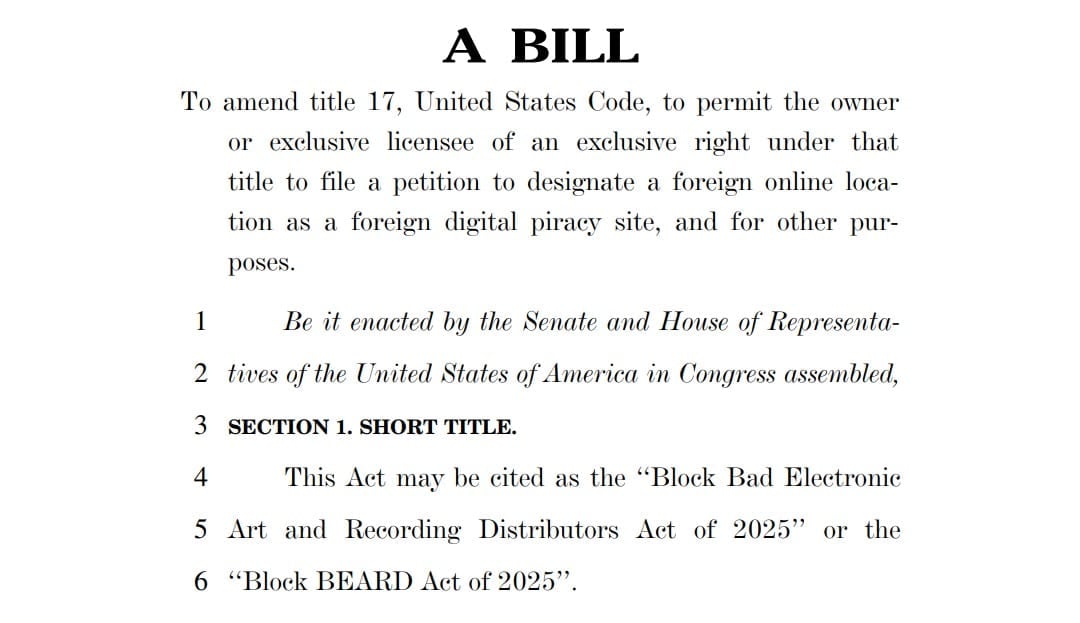-
To
chevron_right
MovieBox is Still Alive and Preparing to Fight Intellectual Property Thieves
news.movim.eu / TorrentFreak • 8 August • 4 minutes
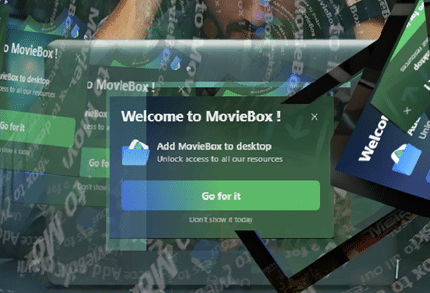 Four weeks ago in the wake of a Netflix price hike in Nigeria, the third in two years, there were fears that the persistent struggle between affordability and legality had reached a critical point once again.
Four weeks ago in the wake of a Netflix price hike in Nigeria, the third in two years, there were fears that the persistent struggle between affordability and legality had reached a critical point once again.
With reports that Nigerian movie lovers were simply dealing with economic realities as they flocked to a local MovieBox-branded platform, urgent questions concerning piracy and the future of an entire movie industry came to the fore once again.
Barely a month later, MovieBox.ng was gone.
First of a Kind Action, Won’t Be The Last
The disappearance of MovieBox was credited to the Nigerian Copyright Commission (NCC) with assistance from the Nigeria Internet Registration Association (NiRA). Their collaboration resulted in the disabling of the domain MovieBox.ng, over which NiRA has control as country’s domain registry.
Celebrated as a big win for the ongoing Stand Together Against Online Piracy (STOP) campaign, simultaneous mention of “clones and multiple mirror domains” and MovieBox’s general resilience, didn’t bode well. Tracked down and confirmed alive two minutes later, MovieBox seemed none the worse for its ordeal.

The row of logos from left to right in the image above shows that no platform’s content is off limits: Netflix, Prime, Disney, Apple, Hulu – the list goes on. MovieBox’s subtle attempt at deflecting liability by allocating usernames to each category and declaring the site legal, has no track record of success.
Strategic domain switches, on the other hand, are known to help platforms stay online, a must if traffic levels are to be preserved. SimilarWeb data reveals that the old .NG domain topped 29.5 million visits in April, 33.7 million in May, and 37.8 million in June.
Jump Around
An alternative domain – moviebox.ph – has already been published in Nigerian media. Others connected to the platform are easy to find, including the sample below.

At this point things become a little more interesting; often a dead end of redactions, in this case WHOIS records are unusually helpful. While there are some differences in respect of domain registrars, most identify the same company as the owner.
At least in public, WHOIS records are supposed to protect domain owners’ privacy but even when protected by anonymity services, it’s not difficult for credible entities to access whatever’s hidden underneath.
For that reason, those who register ‘pirate’ domains tend not to hand over accurate personal details, especially not their own. Records indicate that the domain owner is an active company that celebrated its two-year-anniversary on August 4 this week.
In this case, no effort has been made to obscure the domain owners’ identity or their claimed address in Hong Kong. Both are consistent in WHOIS records across domains and appear to be accurate, as we’ll see in a moment. Given other publicly available information, exposure doesn’t appear to be an issue, which in itself is pretty rare.
And the rarities keep on coming.
1. Piracy | 2. Trademark | 3. ?? | 4. Profit
From uploaders embedding their online handles into filenames and watching them spread around the world, to the more formal tagging adopted by Scene release groups, branding has always carried some level of importance in piracy circles. How those traditions morphed into today’s practices of picking someone else’s brand, and then launching 50 sites with virtually the same name, may be a sign of the times.
Yet the value of branding and trademarks isn’t poorly understood either. For example, the owner of the MovieBox domains above recently filed applications for MovieBox trademarks at the African Intellectual Property Organization (OAPI).
Serving 17 regional member states in various areas of intellectual property protection, trademarks included, OAPI published the MovieBox applications in its official bulletin last month ( pdf ) .

Translated from French, the classes suggest that in the event trademarks are awarded, the MovieBox software system, related mobile phone apps, actual mobile phones and laptops, plus TV equipment and loudspeakers, would all receive valuable protection under trademark law.
For those who enter into a MovieBox contract (terms and conditions here ) respect for those marks includes an agreement not to “remove, obscure, or alter any proprietary notices (including trademark and copyright notices) that may be affixed to or contained within MovieBox.”
Plenty of Business Opportunities
For the right company with the right branding, the market in Africa could prove quite lucrative, especially one with a well-known trademark to associate with mobile phones.
In Nigeria, Android users have access to Google Play but for owners of TECNO, itel, and Infinix-branded devices, manufactured by China-based Transsion, the PalmStore claims to be the official platform for free apps, “security guaranteed.”
Mid-July, the discovery of a high severity authentication vulnerability in the Store’s mobile app warned of information leakage. Whether that has any connection to the thousands of pages of logs uploaded to Scribd isn’t clear.
Whatever the reason, it appears that normally hidden backend events concerning MovieBox and an unknown number of additional apps, are now available for public consumption. Meanwhile, hundreds of domains, pointing to platforms and apps that claim to be the real MovieBox, carry on regardless.
From: TF , for the latest news on copyright battles, piracy and more.

 The frontline of online piracy liability keeps moving and core internet infrastructure providers are increasingly finding themselves in the crosshairs.
The frontline of online piracy liability keeps moving and core internet infrastructure providers are increasingly finding themselves in the crosshairs.
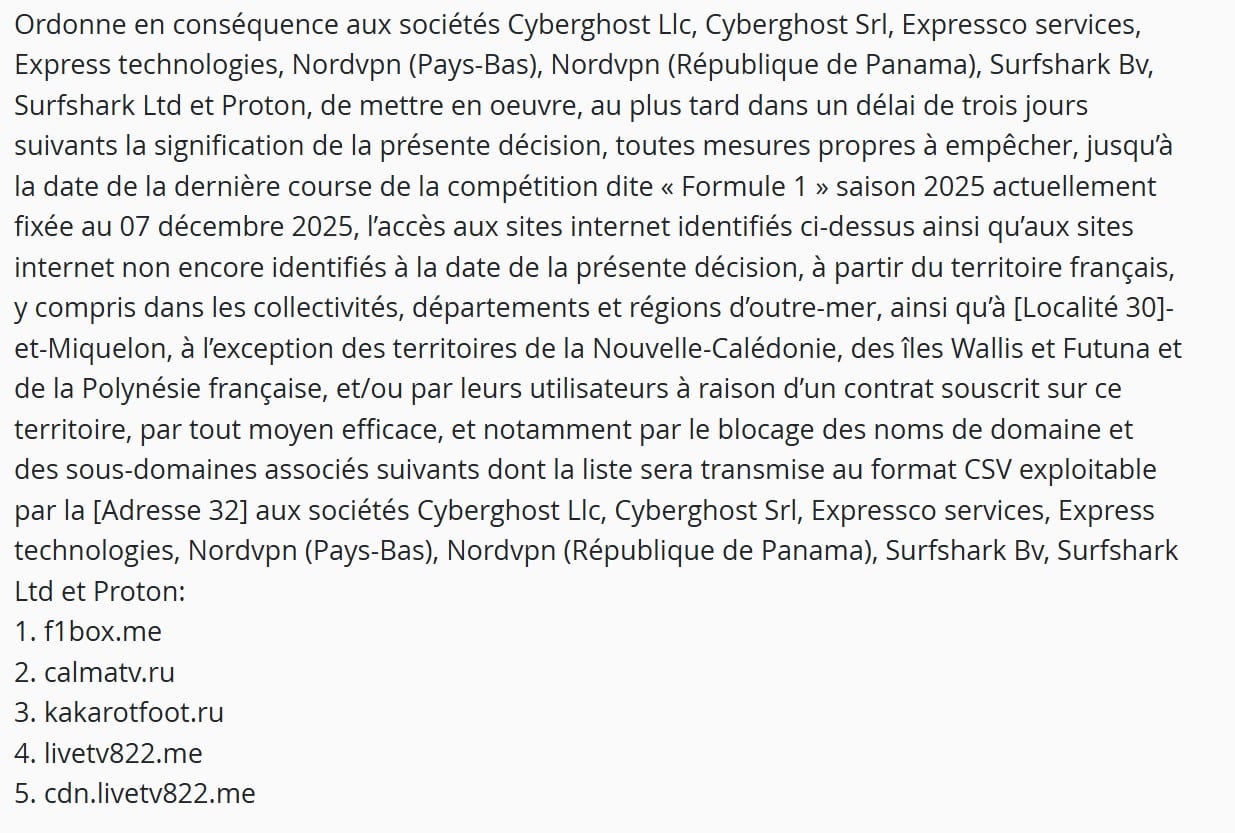
 Many countries are currently tackling above average piracy rates, usually with a mix of education, site blocking, civil action, and criminal enforcement, but not necessarily in that order.
Many countries are currently tackling above average piracy rates, usually with a mix of education, site blocking, civil action, and criminal enforcement, but not necessarily in that order.


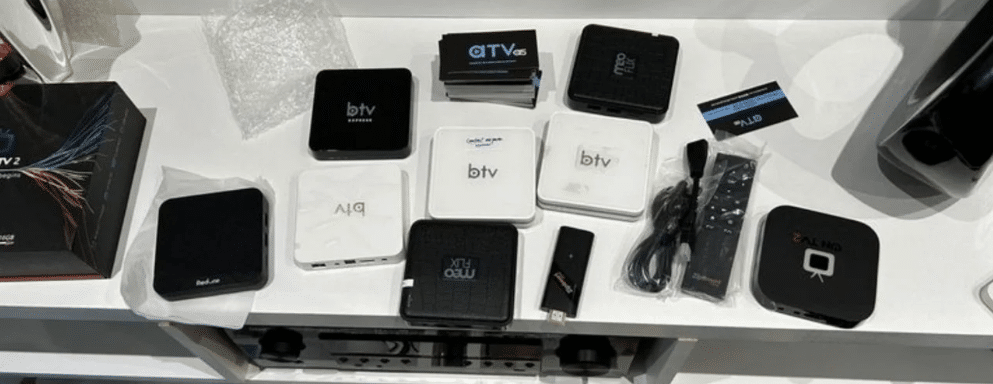
 There hasn’t been much to report on the Piracy Shield front in recent weeks. After Napoli walked away with the title back in May, the Serie A season began winding down ahead of preparations to do it all over again in August.
There hasn’t been much to report on the Piracy Shield front in recent weeks. After Napoli walked away with the title back in May, the Serie A season began winding down ahead of preparations to do it all over again in August.
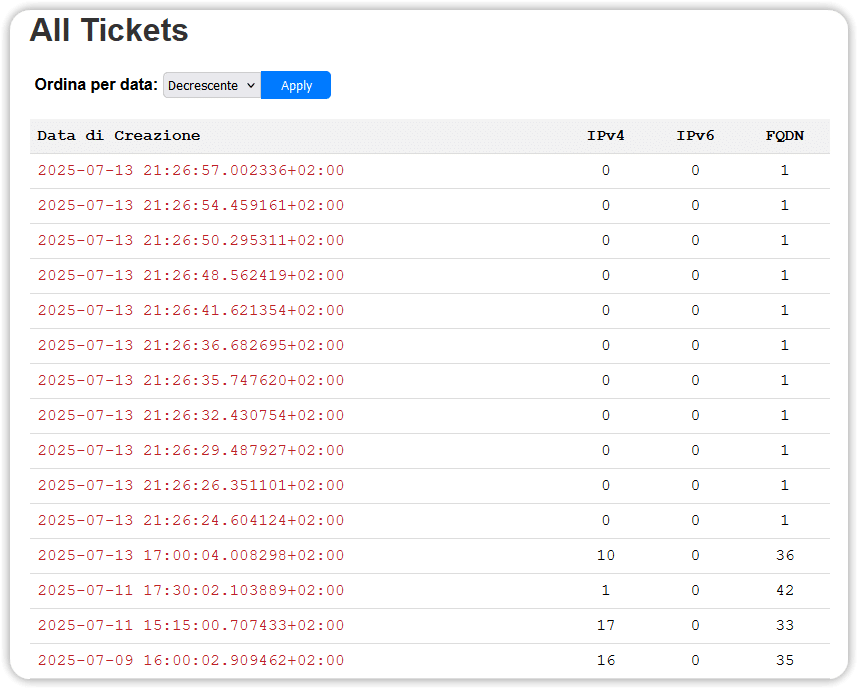
 Movie studio Voltage Pictures has targeted alleged movie pirates in court for well over a decade.
Movie studio Voltage Pictures has targeted alleged movie pirates in court for well over a decade.
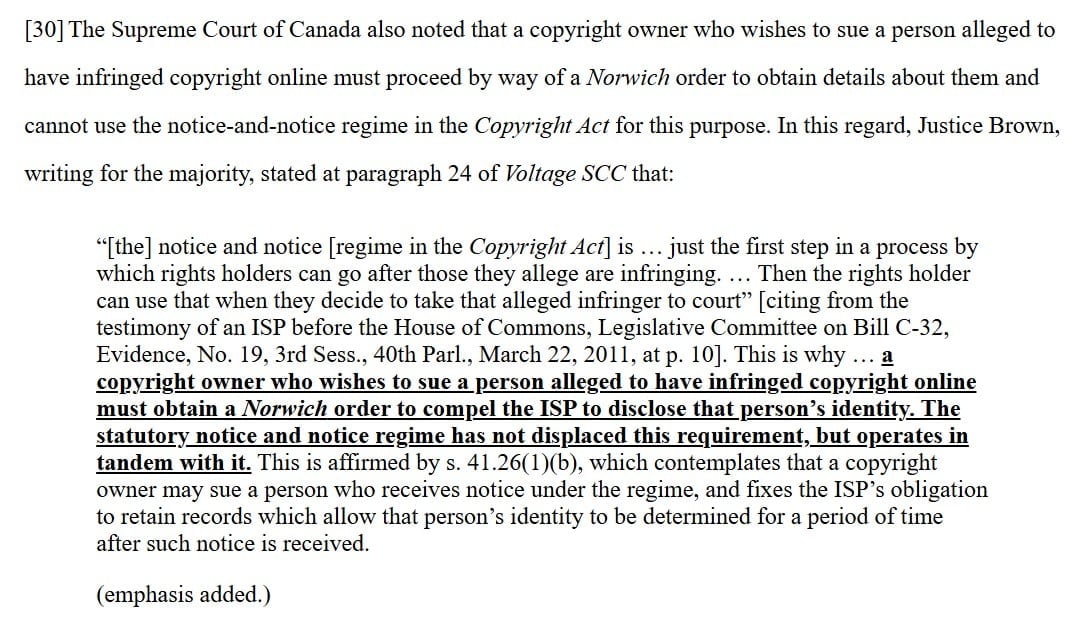
 In 2012, America missed a golden opportunity to show the world how site blocking and other internet restrictions could be deployed at scale to protect rightsholders’ revenues.
In 2012, America missed a golden opportunity to show the world how site blocking and other internet restrictions could be deployed at scale to protect rightsholders’ revenues.
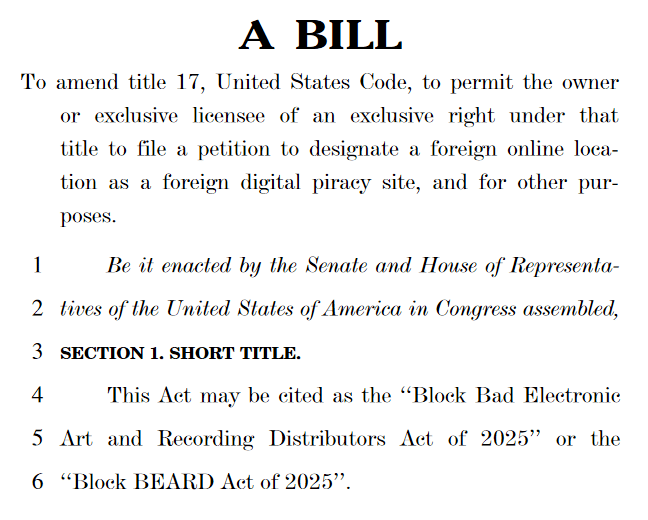 If site blocking is a common tool in 60 countries around the world, having 50 democracies in the mix seems to imply that blocking is compatible with democratic values.
If site blocking is a common tool in 60 countries around the world, having 50 democracies in the mix seems to imply that blocking is compatible with democratic values.

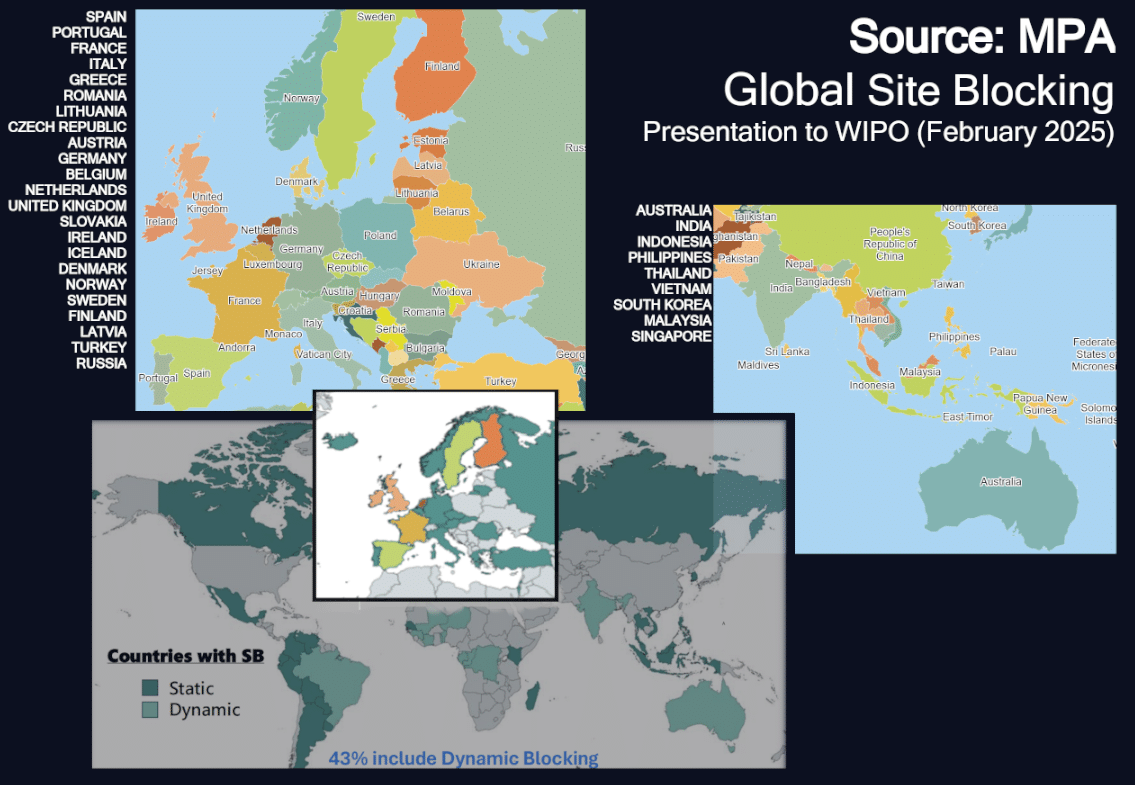
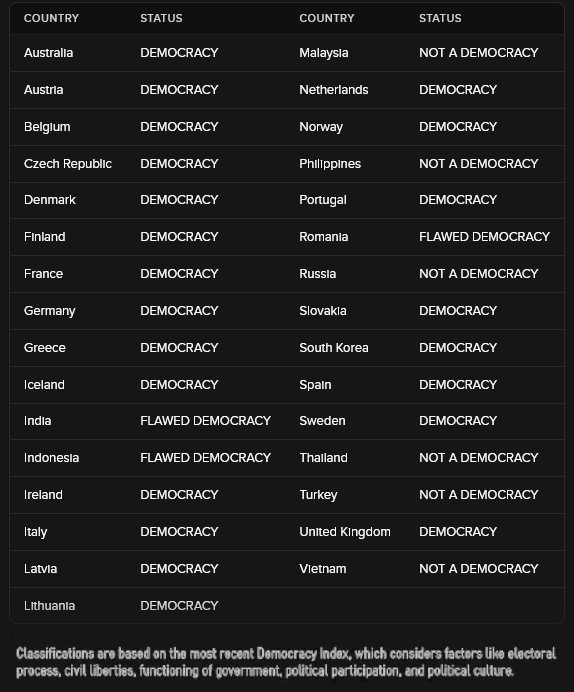 Full democracy (22), Flawed democracy (3) Not a democracy (6)
Full democracy (22), Flawed democracy (3) Not a democracy (6)
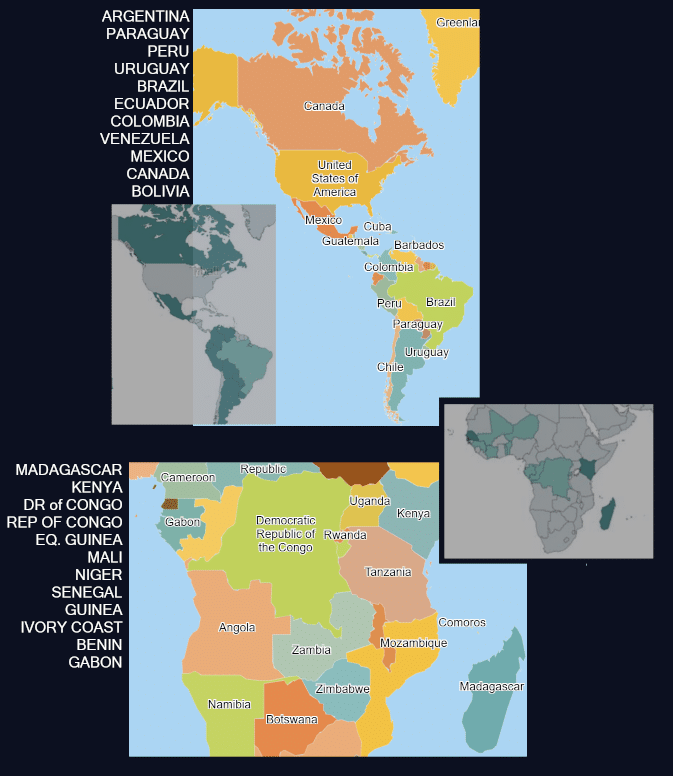
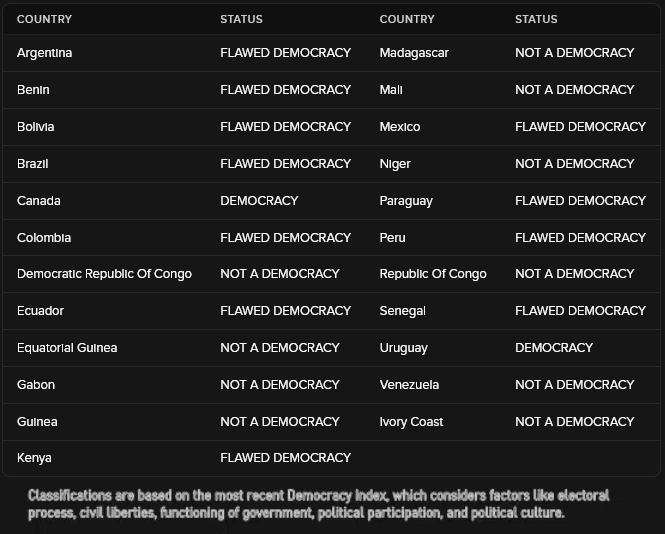 Full democracy (2), Flawed democracy (11), Not a democracy (10)
Full democracy (2), Flawed democracy (11), Not a democracy (10)
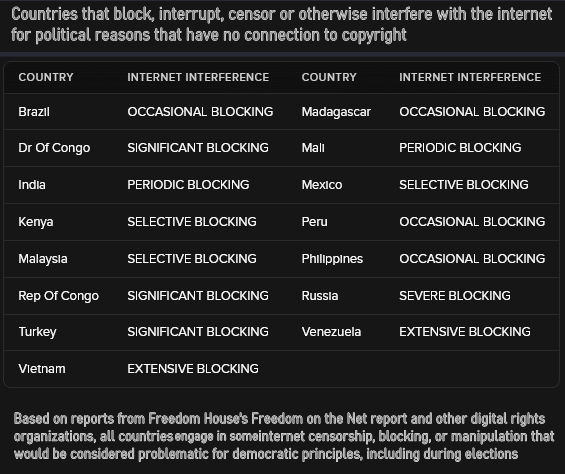
 Rightsholders call them
illicit streaming devices
, others prefer the catch-all term
pirate boxes
. Millions are happy with
Firesticks
, a name so well known that in some cases it’s used to describe other devices, regardless of manufacturer.
Rightsholders call them
illicit streaming devices
, others prefer the catch-all term
pirate boxes
. Millions are happy with
Firesticks
, a name so well known that in some cases it’s used to describe other devices, regardless of manufacturer.
 Traditional site-blocking measures that require local ISPs to block subscriber access to popular pirate sites are in common use around the world.
Traditional site-blocking measures that require local ISPs to block subscriber access to popular pirate sites are in common use around the world.


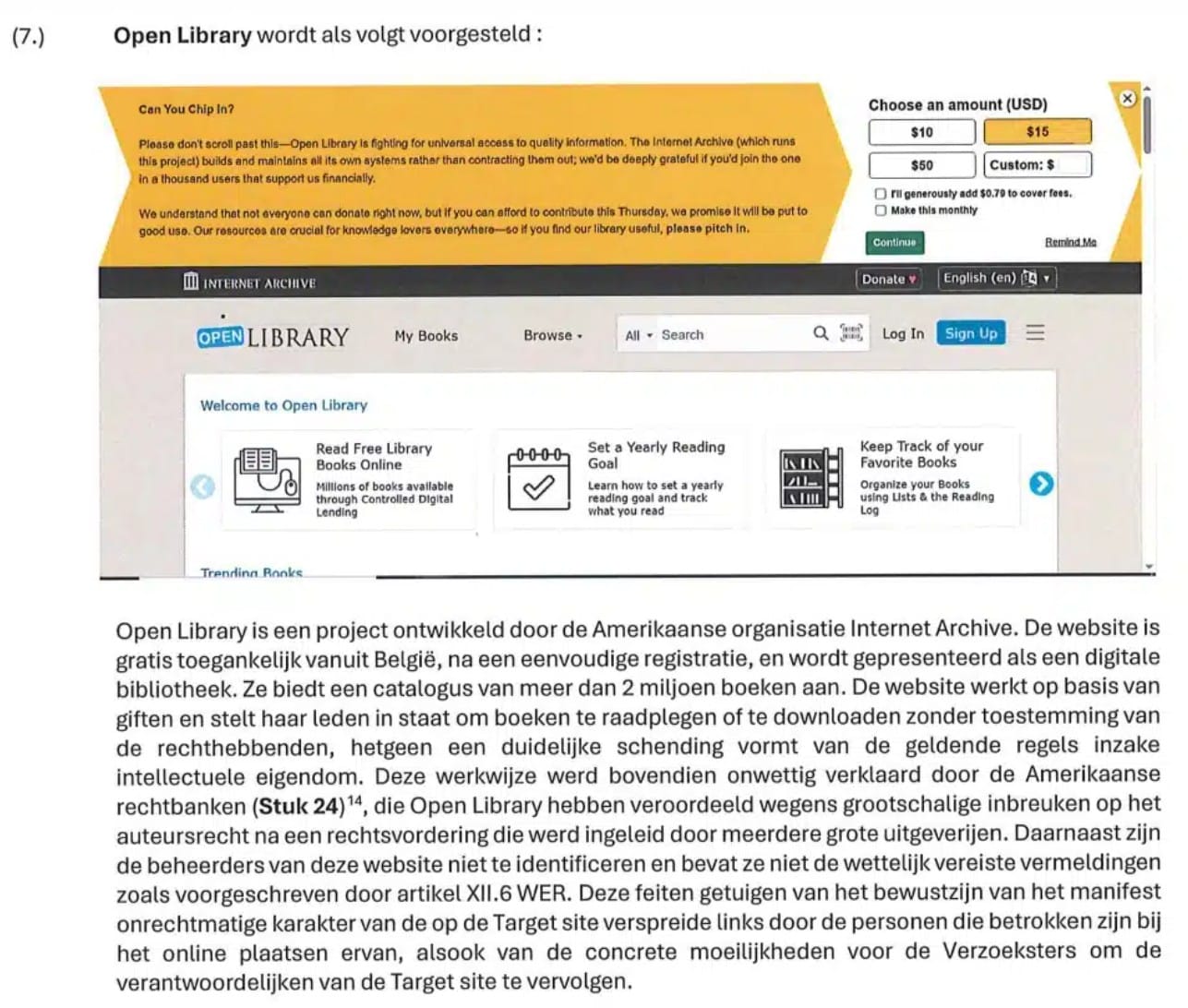
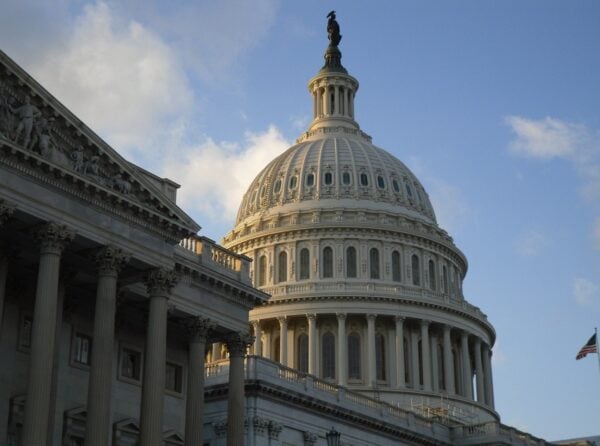 After a decade of focusing efforts overseas, the push for website blocking has landed back on American shores.
After a decade of focusing efforts overseas, the push for website blocking has landed back on American shores.
